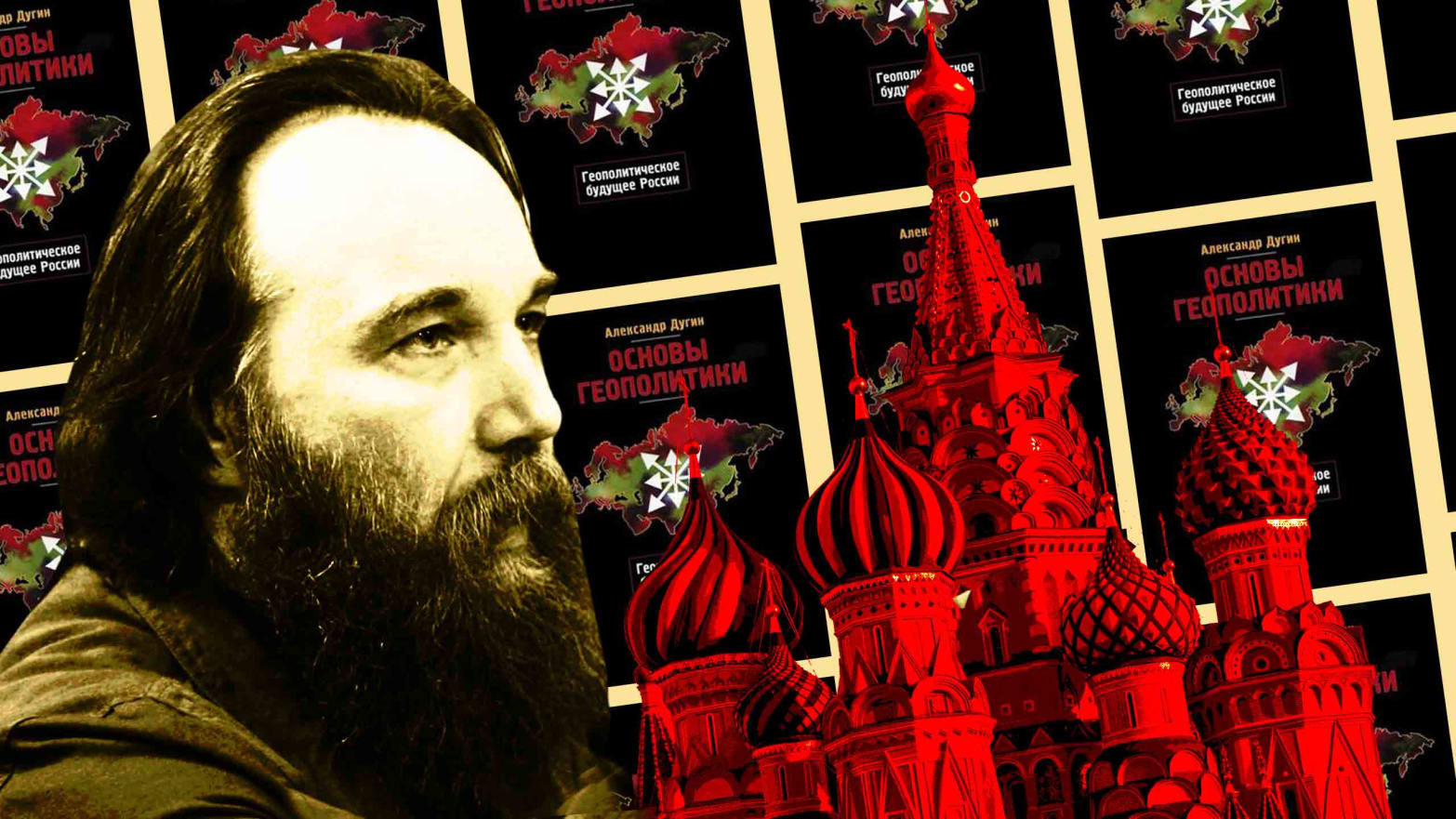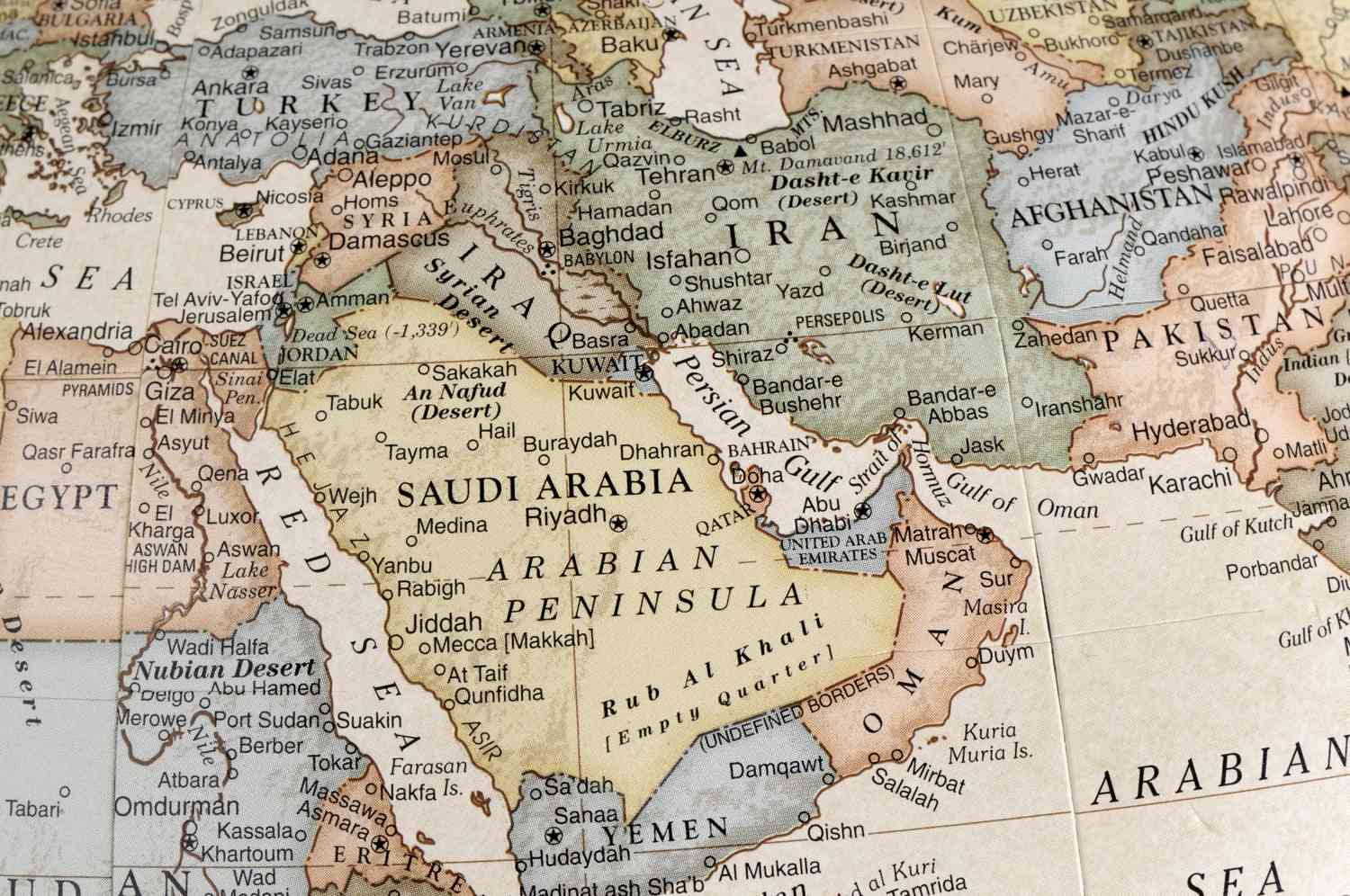Emir Hadikadunic || 29 April 2023
Huntington versus Dugin on Muslim-majority states – where both of them got it wrong
 In the current system, the ideas of two advocates of multi-polarity, Dugin and Huntington, have re-emerged as reference points about the prevailing international order, and the role of the Muslim world in it. Both generally argue that Islamic religion and culture provide the basis for the distinction of Islamic civilisation from others. They also expect Muslim-majority states, as a distinct civilisation, to share some important views, commitments, and actions in international affairs. Dugin held the view that if there is to be a “clash of civilisations”, it would be between the West and the “rest of the world”, with “Eurasianism” the political formula that best suits the latter. He envisaged that Muslim-majority states would be in harmony and peace with the Russian world, but at war with the West. Huntington, on the other hand, saw Muslim-majority states and China in an alliance against the West. He recognised their cooperation on a variety of issues, including human rights, economics, and, most notably, efforts to develop their military capabilities, particularly weapons of mass destruction, to counter the conventional military superiority of the West. By the early 1990s a “Confucian-Islamic connection” was in place between China and North Korea, on the one hand, and — to varying degrees — Pakistan, Iran, Iraq, Syria, Libya, and Algeria, on the other, to confront the West.[1] For Huntington, unlike Dugin, borders between Islamic and Orthodox civilisations were quite bloody. Russia’s relations with Muslim-majority states were shaped by the historical legacy of centuries of expansion through war against the Turks, North Caucasus peoples, and Central Asian emirates.[2] He also cited contemporary conflicts between Bosnian Muslims and Orthodox Serbs; Armenia and Azerbaijan; and Turkey and Greece, among others, as justification — 19 of 28 fault line conflicts in the mid-1990s between Muslims and non-Muslims were between Muslims and Christians: 11 were with Orthodox Christians, and seven with adherents of Western Christianity in Africa and South-east Asia.[3]
In the current system, the ideas of two advocates of multi-polarity, Dugin and Huntington, have re-emerged as reference points about the prevailing international order, and the role of the Muslim world in it. Both generally argue that Islamic religion and culture provide the basis for the distinction of Islamic civilisation from others. They also expect Muslim-majority states, as a distinct civilisation, to share some important views, commitments, and actions in international affairs. Dugin held the view that if there is to be a “clash of civilisations”, it would be between the West and the “rest of the world”, with “Eurasianism” the political formula that best suits the latter. He envisaged that Muslim-majority states would be in harmony and peace with the Russian world, but at war with the West. Huntington, on the other hand, saw Muslim-majority states and China in an alliance against the West. He recognised their cooperation on a variety of issues, including human rights, economics, and, most notably, efforts to develop their military capabilities, particularly weapons of mass destruction, to counter the conventional military superiority of the West. By the early 1990s a “Confucian-Islamic connection” was in place between China and North Korea, on the one hand, and — to varying degrees — Pakistan, Iran, Iraq, Syria, Libya, and Algeria, on the other, to confront the West.[1] For Huntington, unlike Dugin, borders between Islamic and Orthodox civilisations were quite bloody. Russia’s relations with Muslim-majority states were shaped by the historical legacy of centuries of expansion through war against the Turks, North Caucasus peoples, and Central Asian emirates.[2] He also cited contemporary conflicts between Bosnian Muslims and Orthodox Serbs; Armenia and Azerbaijan; and Turkey and Greece, among others, as justification — 19 of 28 fault line conflicts in the mid-1990s between Muslims and non-Muslims were between Muslims and Christians: 11 were with Orthodox Christians, and seven with adherents of Western Christianity in Africa and South-east Asia.[3]
But rather than choosing an alliance with a single pole, as Huntington and Dugin suggested, Muslim-majority states have preferred constructive engagements with various great powers, based solely on their commercial or geopolitical interests. As Michael Singh has suggested, small and medium-sized states[4] are “eschewing both alignment with a single power and non-alignment, and are instead choosing omni-alignment: Participation in both the multilateral institutions led by the United States and those spearheaded by its rivals.” He added that “omni-alignment also serves as a hedge against the unpredictability of great-power behaviour. This hedging is most clearly seen in the Middle East, where the future of both US and Chinese engagement in the region remains unclear.”
Conclusion
 That Iran, Turkey, the United Arab Emirates, Pakistan, Saudi Arabia or other Muslim-majority states share a more independent and assertive foreign policy outlook is down to two underlying causes that interact with each other. At the national level, these states view liberal democracy as a threat to their political systems. However different, they prefer more authoritarian, populist, and strong states. At the international level, they resent the liberal interventionist order, and prefer multi-polarity instead. They have left behind their past, which saw more dependence on great powers, peripheral status in international affairs, and problematic intra-state relations, for a new international posture that facilitates the reduction of antagonisms within the Muslim world. This post-Western world order also gives a larger number of them a bigger say in global decision-making processes. They are also aiming to become central within their regional sub-systems, and global actors in international affairs. Their leaders also relish the prospect of moving towards a post-liberal and new global order where the East balances the West — one in which Muslim states are no longer “client”, “torn”, “vassal”, or “periphery” states.
That Iran, Turkey, the United Arab Emirates, Pakistan, Saudi Arabia or other Muslim-majority states share a more independent and assertive foreign policy outlook is down to two underlying causes that interact with each other. At the national level, these states view liberal democracy as a threat to their political systems. However different, they prefer more authoritarian, populist, and strong states. At the international level, they resent the liberal interventionist order, and prefer multi-polarity instead. They have left behind their past, which saw more dependence on great powers, peripheral status in international affairs, and problematic intra-state relations, for a new international posture that facilitates the reduction of antagonisms within the Muslim world. This post-Western world order also gives a larger number of them a bigger say in global decision-making processes. They are also aiming to become central within their regional sub-systems, and global actors in international affairs. Their leaders also relish the prospect of moving towards a post-liberal and new global order where the East balances the West — one in which Muslim states are no longer “client”, “torn”, “vassal”, or “periphery” states.
It remains to be seen how core Muslim-majority states’ push for increased centrality within their regional sub-systems will play out in the longer term. But in the grand scheme of things, the new, assertive foreign policy of the Muslim world would certainly strengthen the forces of multipolarity, such as China and Russia. However, their preference for this will not determine their enemies and allies in the emerging world, despite arguments that suggest otherwise. Muslim leaders are not expected to follow what Huntington defined as the Islamic-Confucian alliance against Western civilization, or what Dugin proposed as a common front of Islamic-Orthodox civilisations against the liberal West. On the contrary, they will continue to establish political, economic, or security partnerships with different poles in the international system without explicit military alliance assurances with any great power. Muslim states may even contribute to the stability of the anarchic and more complex international multi-polar system by offering their mediation in conflict zones that involve opposing great powers. Indeed, understanding these patterns from the Muslim world is crucial to discerning new realities that will shape international affairs in the medium and long term.
Endnotes
[1] Huntington, The clash of civilizations?, 185.
[2] Ibid., 243.
[3] Ibid., 212.
[4] Michael Singh, “The Middle East in a Multipolar Era,” Foreign Affairs, December 7, 2022.
Bibliography
- Cafiero, Giorgio. “Analysis: The Russia-Ukraine war and the view from Saudi Arabia.” Aljazeera, October 24, 2022. https://www.aljazeera.com/news/2022/10/24/analysis-russia-ukraine-war-view-from-saudi-arabia
- Daniele, Ushar, Raihana Sayeeda Kamal, Heba Hashem. “Muslim countries maintain awkward neutrality over the Russo-Ukrainian War.” Salaam Gateway, April 6, 2022. https://salaamgateway.com/story/muslim-countries-maintain-awkward-neutrality-over-the-russo-ukrainian-war
- Dugin, Alexander. The fourth political theory, Arktos, 2012. https://archive.org/details/TheFourthPoliticalTheory/page/n157/mode/1up
- Ghebouli, Zine Labidine. “The war in Ukraine: A test for Algiers’ non-alignment doctrine.” MEI, July 7, 2022. https://www.mei.edu/publications/war-ukraine-test-algiers-non-alignment-doctrine
- Ghosh, Bobby. “The Real Reason Turkey Is Mad at Joe Biden.” Bloomberg, August 17, 2020. https://www.bloomberg.com/opinion/articles/2020-08-17/the-real-reason-turkey-s-erdogan-is-mad-at-joe-biden?leadSource=uverify%20wall
- Hafezi, Parisa, and Guy Faulconbridge. “Iran applies to join China and Russia in BRICS club.” Reuters, June 28, 2022. https://www.reuters.com/world/middle-east/iran-applies-join-brics-group-emerging-countries-2022-06-27/
- Helmore, Edward. “Saudi Arabia and UAE leaders ‘decline calls with Biden’ amid fears of oil price spike.” The Guardian, March 9, 2022. https://www.theguardian.com/us-news/2022/mar/09/saudi-arabia-and-uae-leaders-decline-calls-with-biden-amid-fears-of-oil-price-spike
- Huntington, P. Samuel. The clash of civilizations?. Penguin Books. UK, London, 1996
- Hutt, David. “Indonesia juggles Russia, Ukraine and the West.” July 7, 2022. https://www.dw.com/en/indonesia-jokowi-walks-tightrope-balancing-ties-with-russia-west/a-62396110
- Ibrahim, Arwa. “UAE stance on Ukraine war reflects ‘strong alliance’ with Russia.” Aljazeera, March 3, 2022. https://www.aljazeera.com/news/2022/3/3/uae-stance-on-ukraine-war-reflects-strong-alliance-with-russia
- Jervis, Robert. “Understanding the Bush Doctrine.” Political Science Quarterly 118, no. 3 (Fall 2003).
- Khan, Imran. “Town Hall Meeting with Imran Khan.” December, 2022. https://www.youtube.com/watch?v=pvyywLWPSSMhttps://youtu.be/2UElC_YZ0Eo.
- Kuimova, Alexandra. “Russia’s Arms Exports to the MENA Region: Trends and Drivers.” Policy Brief, European Institute of Mediterranean, (2019). https://www.iemed.org/publication/russias-arms-exports-to-the-mena-region-trends-and-drivers/
- Mahbubani, Kishor. “The Dangers of Decadence – What the Rest Can Teach the Rest.” Foreign Affairs, 72, No. 4 (Sep. – Oct., 1993).
- Marandi, Seyed Mohammad and Raffaele Mauriello. “The Khamenei Doctrine – Iran’s leader on diplomacy, foreign policy and international relations.” In Islam and International Relations, Politics and Paradigms. Edited by Nassef Manabilang Adiong, Raffaele Mauriello, and Deina Abdelkader, Routledge (2019).
- Mearsheimer, J. John. The great delusion: Liberal dreams and international realities. Yale University Press, 2018.
- Meredith, Sam. “OPEC+ agrees gradual output hike despite oil price rally, intensifying Russia supply fears.” CNBC, March 2, 2022, https://www.cnbc.com/2022/03/02/russia-ukraine-crisis-opec-to-decide-on-oil-production-policy.html
- Monten, Jonathan. “The Roots of the Bush Doctrine: Power, Nationalism, and Democracy Promotion in U.S. Strategy.” International Security, 29, no. 4 (Spring 2005).
- Norris, Pippa, and Ronald Inglehart. “Islam & the West: Testing the Clash of Civilizations Thesis.” Faculty Research Working Papers Series, John F. Kennedy School of Government Harvard University, April 2002.
- Oğuzlu, H. Tarik. “Turkish Foreign Policy in a Changing World Order.” All Azimuth V9, N1, 127-136. 19 October 2018, (Abstract), DOI: 20991/allazimuth.464076
- Perry, E. Glenn. “Huntington and his critics: The West and Islam.” Arab Studies Quarterly 24, No. 1 (Winter 2002). https://www.jstor.org/stable/41858402?seq=12#metadata_info_tab_contents
- Salih, Amr. “Why Does Some of the Arab Public Support Putin’s War in Ukraine?.” CARNEGIE. June 16, 2022, https://carnegieendowment.org/sada/87353
- Salah, Ehsan. “Egypt, UAE, Saudi Arabia abandon neutrality in UN vote, condemn Russian invasion.” MADA, March 2, 2022. https://www.madamasr.com/en/2022/03/02/news/u/egypt-uae-saudi-arabia-abandon-neutrality-in-un-vote-condemn-russian-invasion/
- Shaimaa Magued, Shaimaa. “Constructivism in the Islamic approach to International Relations: Davutoğlu and Qutb as case studies.” in Islam and International Relations, Politics and Paradigms. Edited by Nassef Manabilang Adiong, Raffaele Mauriello, and Deina Abdelkader, Routledge (2019).
- Singh, Michael. “The Middle East in a Multipolar Era.” Foreign Affairs. December 7, 2022.
- Wezeman, D. Pieter, Alexandra Kuimova and Siemon T. Wezeman. “Trends in International Arms Transfers, 2021.” SIPRI Fact Sheet, 2022. https://www.sipri.org/sites/default/files/2022-03/fs_2203_at_2021.pdf
- White, B. “Analyzing Foreign Policy: Problems and Approaches.” in M. Clarke and B. White (eds.), Understanding Foreign Policy. Hants: Edward Elgar, 1989.
- Woodruff, Judy. “Turkey President Erdoğan on Russia’s invasion of Ukraine and the future of NATO.” PBS News Hour. September 19, 2022. https://www.pbs.org/newshour/show/turkey-president-erdogan-on-russias-invasion-of-ukraine-and-the-future-of-nato
 Dr Emir Hadikadunic is a Senior Research Fellow at the Islamic Renaissance Front. He is currently visiting professor at the University of Sarajevo School of Science and Technology, and previously served as distinguished fellow at the Universiti Teknologi MARA (Malaysia) and visiting fellow at Istanbul Commerce University (Turkey). He has also served as Bosnian Ambassador to Iran (2010-13) and Malaysia (2016-2020). Dr Hadikadunic obtained a PhD in international relations from the International University of Sarajevo, and is the author of two books and several journal articles on peace-building, foreign policy, and international affairs. This essay first appeared in the Middle East Institute Perspectives, National University of Singapore at https://mei.nus.edu.sg/publication_category/mei-perspectives/
Dr Emir Hadikadunic is a Senior Research Fellow at the Islamic Renaissance Front. He is currently visiting professor at the University of Sarajevo School of Science and Technology, and previously served as distinguished fellow at the Universiti Teknologi MARA (Malaysia) and visiting fellow at Istanbul Commerce University (Turkey). He has also served as Bosnian Ambassador to Iran (2010-13) and Malaysia (2016-2020). Dr Hadikadunic obtained a PhD in international relations from the International University of Sarajevo, and is the author of two books and several journal articles on peace-building, foreign policy, and international affairs. This essay first appeared in the Middle East Institute Perspectives, National University of Singapore at https://mei.nus.edu.sg/publication_category/mei-perspectives/

